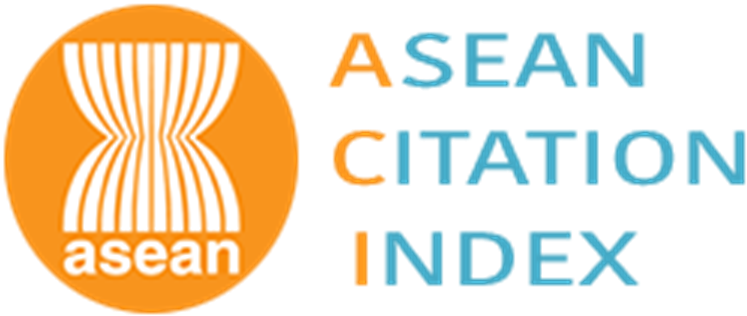การสะสมความรู้ในตัวคนเพื่อพัฒนาความสามารถในการปฏิบัติงานของแรงงานในสถานประกอบการ
Abstract
บทคัดย่อ
การศึกษาวิจัยครั้งนี้มีวัตถุประสงค์เพื่อ 1) ศึกษากระบวนการการสะสมความรู้ในตัวคนเพื่อพัฒนาความสามารถในการปฏิบัติงานของแรงงานในสถานประกอบการ 2) ศึกษาปัจจัยส่งเสริมกระบวนการการสะสมความรู้ในตัวคนเพื่อพัฒนาความสามารถในการปฏิบัติงานของแรงงานในสถานประกอบการ เป็นการวิจัยเชิงคุณภาพ กรณีศึกษาในสถานประกอบการ ซึ่งไม่มีระบบการจัดการด้านการพัฒนาทรัพยากรมนุษย์กลุ่มประชากรหลัก ได้แก่กลุ่มคนงานรวม 59 คน โดยเก็บข้อมูลจากเอกสารและข้อมูลภาคสนาม นำกรอบแนวคิดและจุดมุ่งหมายการวิจัยมาจัดทำเครื่องมือในการเก็บรวบรวมข้อมูลภาคสนาม โดยใช้การสัมภาษณ์ (Interview) และการสังเกต (Observation) นำข้อมูลมาวิเคราะห์โดยการจำแนกและจัดระบบข้อมูล (Typology and Taxonomy) การวิเคราะห์สรุปอุปนัย (Analytic Induction) และการเปรียบเทียบเหตุการณ์ (Constant Comparison) ผลการวิจัยพบว่า การสะสมความรู้ในตัวคนของแรงงานเป็นกระบวนการปฏิสัมพันธ์ทางสังคม (Socialization) เป็นการเรียนรู้ของผู้ใหญ่ ตามแนวคิดความรับผิดชอบส่วนบุคคล (Personal Responsibility Orientation) หรือ PRO Model มีองค์ประกอบกระบวนการการสะสมความรู้ในตัวคนของแรงงาน ดังนี้ 1) ด้านความรับผิดชอบส่วนบุคคล 2) การชี้นำตนเองของผู้เรียน 3) การเรียนรู้โดยการชี้นำตนเอง (Self-directed Learning) 4) การชี้นำตนเองในการเรียนรู้ (Self-direction in Learning) ภายในบริบทของชุมชนแนว
ปฏิบัติ (Community of Practice) พบกระบวนการสะสมความรู้ในตัวคนของแรงงาน คือ 1) การเข้าสู่สถานภาพคนงาน 2) การสำรวจงาน 3) กำหนดงานที่เป็นเป้าหมาย 4) การจัดการเรียนรู้และ 5) การสะสมความรู้ในตัวคน สำหรับปัจจัยส่งเสริมกระบวนการการสะสมความรู้ในตัวคนของแรงงาน มีดังนี้ 1) สภาพแวดล้อมชุมชนแนวปฏิบัติ 2) กระบวนการทำงาน 3) ปัจจัยจากสภาวะผู้นำ 4) คุณลักษณะของคนงาน
คำสำคัญ: ความรู้ในตัวคน แรงงานในสถานประกอบการ ชุมชนแนวปฏิบัติ
Abstract
This research has two main objectives: 1) To study the tacit knowledge collection process of labors in the factory for their performance development 2) To study the factors supporting the tacit knowledge collection process of these workforce for their performance development. This study is a qualitative research investigated in a factory with no suitable human resources management system. The main research population is a group of 59 factory workers. The information was collected from documents and field studies. The concept and aim of the research are to exploit tools to collect field data by means of an interview and observation. Collected data will be analyzed utilizing typology and taxonomy, analytic induction and constant comparison. As results, employees’ tacit knowledge collection is a socialization process in adult learning. These factors are based on the concept of personal responsibility orientation or PRO Model. Under the context of Community of Practice, those characteristics are found in the process of knowledge accumulation, to be disclosed as follows: 1) Personal responsibility 2) Self-directed learning 3) Learner self-direction 4) Self-direction in learning. Therefore, the process of the tacit knowledge collection of the aforementioned workforce can be concluded in 5 steps 1) Entry to the work life 2) Exploring work tasks 3) Defining goals for their work performance 4) Managing learning processes and 5) Knowledge acquisition and internal knowledge accumulation. Furthermore, factors supporting the stated accumulation procedure can be identified as follows: 1) Community environment 2) Work processes 3) Leadership competencies and 4) Worker traits and characteristics.
Keywords: Tacit Knowledge, Labors, Communities of Practice
ISSN: 2985-2145





